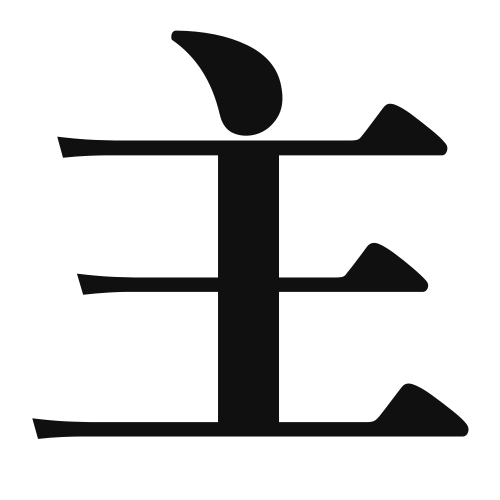1. Overview of Meaning
The kanji “主” (pronounced “shu” or “nushi”) primarily means “master,” “main,” or “principal.” It denotes someone who has authority or control over something, as well as the main component of a situation or object.
2. Formation and Radical
The kanji “主” is a phono-semantic compound, which means it combines both phonetic and semantic elements. The left part of the character is a phonetic component, while the right part conveys the meaning. The radical for “主” is 主, which also represents the concept of “master” or “main.”
3. Examples of Usage
Common words and phrases that include “主” are:
- 主人 (shujin) – “master” or “husband”
- 主役 (shuyaku) – “leading role” or “main character”
Example sentences in daily conversation:
- 彼は家の主人です。 (Kare wa ie no shujin desu.) – “He is the master of the house.”
- この映画の主役はとても有名です。 (Kono eiga no shuyaku wa totemo yuumei desu.) – “The main character of this movie is very famous.”
4. Synonyms and Antonyms
Similar kanji with related meanings include:
- 長 (naga) – “long” or “chief,” which can refer to a leader but has a broader meaning.
- 王 (ou) – “king,” which implies a higher authority than “主.”
Antonyms include:
- 従 (juu) – “to follow,” which indicates a subordinate position.
5. Cultural and Historical Background
The kanji “主” has significant ties to Japanese culture, often used in contexts related to authority and respect. It appears in various proverbs and idiomatic expressions, such as:
- 主客転倒 (shukyaku tentou) – “the roles of host and guest are reversed,” indicating a situation where the expected order is disrupted.
This reflects the importance of hierarchy and roles in Japanese society.
